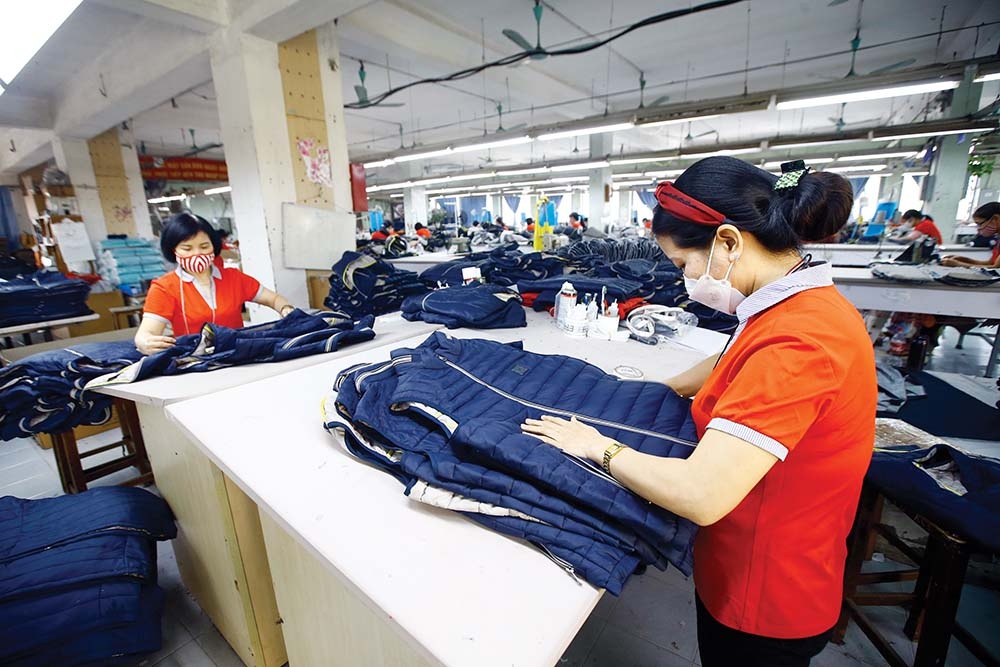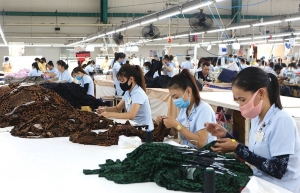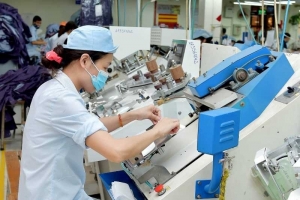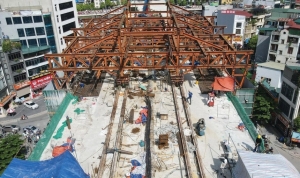Tough times for garments and textiles firms
Viet Thang Corporation, a subsidiary of state conglomerate Vinatex, has released its first-quarter results showing an increase of $315,650 in the company’s financial expenses, mainly attributable to interest fees which amounted to $275,650.
 |
Dony Garment Company, based in Binh Chanh, Ho Chi Minh City, reported that although capital access has become easier as banks have softened their lending rate from 13 per cent to as low as 9.5 per cent, repayments are still having an impact as the company simply doesn’t have enough large-value orders. Dony Garment's export market has shed nearly 70 per cent on-year, and domestic orders have fallen about 20 per cent and continue to drop.
Pham Quang Anh, director of Dony Garment, said, "We don't even dare to think about growth at this time. Surviving this tough spell represents enough of a challenge.”
In the short-term, Dony Garment is considering selling part of it assets to pay back loans to reduce interest payment pressure, and in the medium term the company is pinning its hopes on an increase in orders in the domestic market.
Discussing concerns about the availability of capital, the CEO of Tran Hiep Thanh Textile Corporation, Tran Quoc Dat, said, "Last year, Vietcombank readily granted credit to Happytex, one of our subsidiaries based in Tay Ninh, but just one year later, credit provisions were halted, causing the firm many difficulties with several projects in the development pipeline."
Winning large orders means remaining competitive, and many manufacturers are having to reduce their prices to compete with China and Bangladesh. Large-sized firms in the sector have had to restructure operations and reduce their labour expenses, with some workers offered only four days a week, with many more laid off entirely.
“To survive at this time, we must make efforts to offer competitive prices. However, we don’t know how long we can hold out if this situation continues,” said Dat.
These diverse factors make it exceedingly hard to forecast the possibility of a rebound in the garments and textiles industry, as it depends largely on export markets and investment streams.
| Many manufacturers are having to reduce their prices to compete with China and Bangladesh |
Pham Van Viet, deputy chairman of the Ho Chi Minh City Association of Garments, Textiles, Embroidery and Knitting, noted that the industry is still waiting for signs of improvement as order intake in Europe and the US market shows no signs of rebounding just yet, and growth in Asian markets stands still.
Viet, therefore, suggests, "It is time to make a change. This current situation represents a challenge, yet it also provides a good opportunity for the sector to initiate its technology transformation journey and support firms as they conduct their own."
 | Apparel groups under supply chain pressure Vietnam’s textiles, garments, and footwear are compelled to compete on the basis of quality, the environment, and the working conditions of its employees, since low-cost labour and cheap prices are no longer an advantage. |
 | Textile and apparel firms struggling amid interest woes Many textile and apparel firms have had to postpone investment and expansion plans in the face of soaring interest rates, high production costs and dwindling order intake. |
 | Tough year expected for banks in 2023 With a dim outlook for the banking industry, most securities firms forecast that banks will post conservative profit growth in 2023. |
 | 2022 marks tough year for building contractors The business performance of many building contractors has been poor this year due to the challenging environment. |
What the stars mean:
★ Poor ★ ★ Promising ★★★ Good ★★★★ Very good ★★★★★ Exceptional
Related Contents
Latest News
More News
- Vietnam ready to increase purchases of US goods (February 04, 2026 | 15:55)
- Steel industry faces challenges in 2026 (February 03, 2026 | 17:20)
- State corporations poised to drive 2026 growth (February 03, 2026 | 13:58)
- Why high-tech talent will define Vietnam’s growth (February 02, 2026 | 10:47)
- FMCG resilience amid varying storms (February 02, 2026 | 10:00)
- Customs reforms strengthen business confidence, support trade growth (February 01, 2026 | 08:20)
- Vietnam and US to launch sixth trade negotiation round (January 30, 2026 | 15:19)
- Digital publishing emerges as key growth driver in Vietnam (January 30, 2026 | 10:59)
- EVN signs key contract for Tri An hydropower expansion (January 30, 2026 | 10:57)
- Vietnam to lead trade growth in ASEAN (January 29, 2026 | 15:08)

 Tag:
Tag:

























 Mobile Version
Mobile Version